Use our Credit Card Calculator to estimate monthly payments, interest, and payoff time. Plan your credit card usage and manage debt effectively.
Managing credit card debt effectively starts with understanding exactly what you owe and how long it will take to pay it off. Our Credit Card Calculator helps you visualize your debt repayment journey, showing you how different payment strategies affect your timeline and total interest paid. Whether you're trying to eliminate existing debt or planning future credit card usage, this calculator provides the clarity you need to make informed financial decisions.
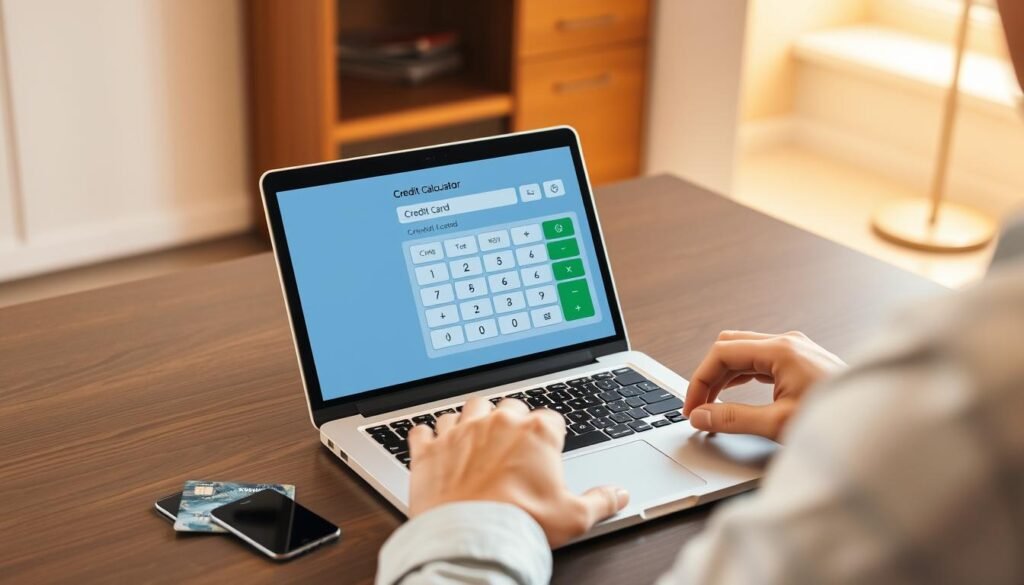
Credit Card Payoff Calculator
Use this calculator to determine how long it will take to pay off your credit card balance based on your monthly payment amount, or calculate how much you need to pay monthly to become debt-free by a specific date.
Enter Your Credit Card Details
Need More Financial Calculators?
Explore our full suite of financial tools to help you make smarter money decisions.
How the Credit Card Calculator Works
Our calculator uses financial formulas to accurately determine your credit card payoff timeline and total interest costs. Understanding the calculation method helps you make better decisions about your debt repayment strategy.
The Calculator Considers:
- Your current outstanding balance
- The annual percentage rate (APR) on your card
- Your monthly payment amount
- Any additional payments you plan to make
- Compounding interest calculations
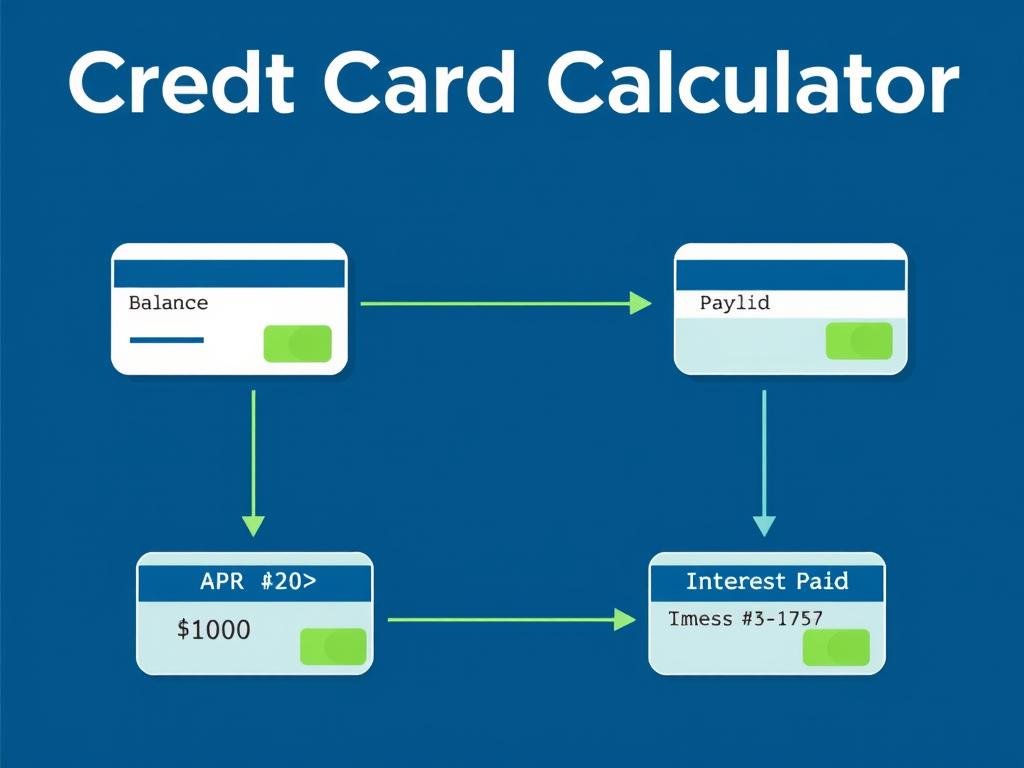
Calculation Method
The calculator uses the daily periodic rate (DPR) method, which is how most credit card companies calculate interest. Here's how it works:
Step 1: Calculate the Daily Periodic Rate by dividing your APR by 365 days
Step 2: Determine the average daily balance for your billing cycle
Step 3: Multiply the DPR by your average daily balance and the number of days in the billing cycle
Step 4: Project future balances based on your payment schedule
This approach gives you the most accurate estimate of how long it will take to pay off your credit card and how much interest you'll pay over that period.
Understanding Credit Card Interest
Credit card interest can significantly increase the total amount you pay over time. Understanding how it works is essential for managing your finances effectively.
APR Explained
Annual Percentage Rate (APR) represents the yearly cost of borrowing money on your credit card. Cards typically have different APRs for purchases, balance transfers, and cash advances.
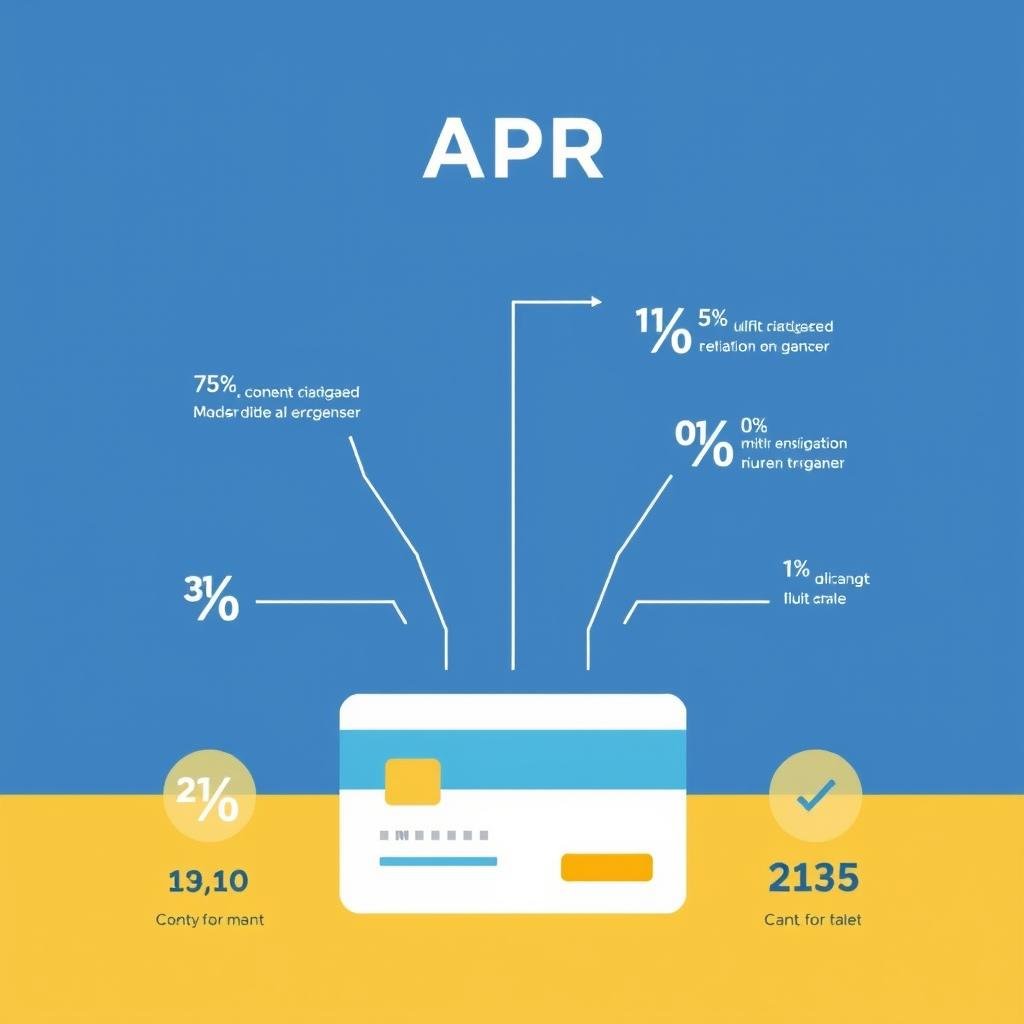
Compounding Interest
Credit card interest compounds daily, meaning you pay interest on previously accrued interest. This can cause your debt to grow much faster than you might expect.
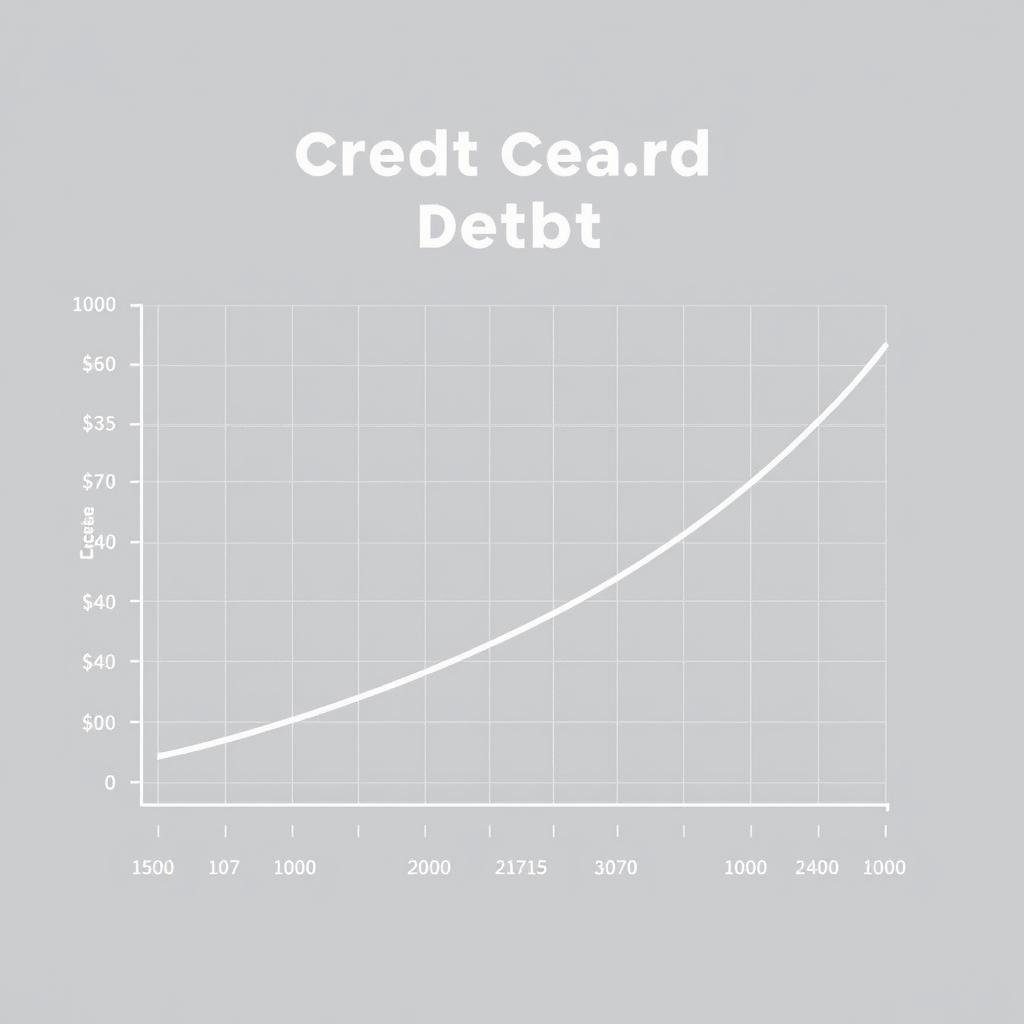
Minimum Payments
Making only minimum payments extends your repayment period significantly and increases the total interest paid. Our calculator shows you the impact of different payment strategies.
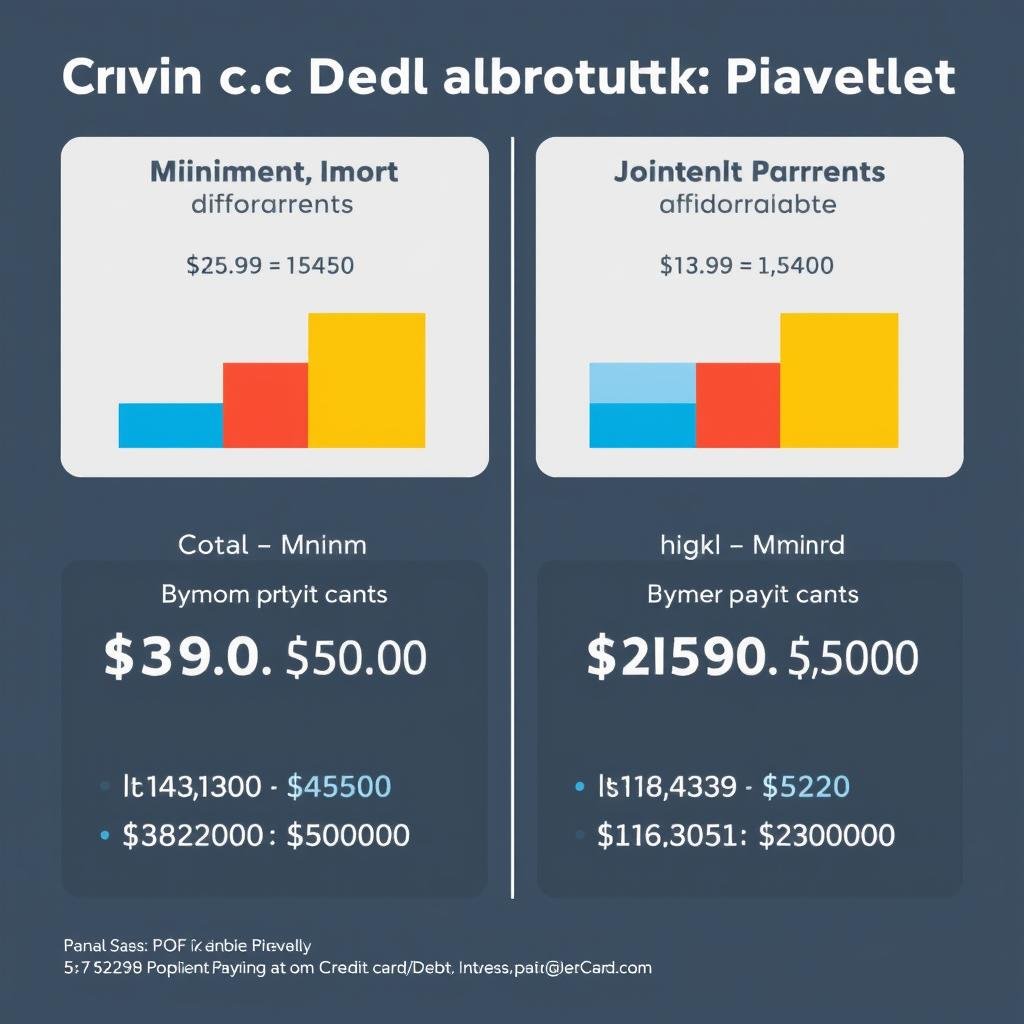
Making only minimum payments on a $5,000 credit card balance with 18% APR could take over 18 years to pay off and cost more than $6,000 in interest.
Effective Credit Card Payoff Strategies
The right repayment strategy can help you eliminate credit card debt faster and save money on interest. Our calculator can help you compare different approaches.
Debt Avalanche Method
This strategy focuses on paying off credit cards with the highest interest rates first while making minimum payments on others. It minimizes the total interest paid over time.
Advantages
- Saves the most money on interest
- Mathematically optimal approach
- Reduces highest-cost debt first
Disadvantages
- May take longer to pay off first card
- Less psychological reward initially
- Requires discipline to maintain
Debt Snowball Method
This approach prioritizes paying off cards with the smallest balances first, regardless of interest rate. It provides psychological wins that can help maintain motivation.
Advantages
- Quick wins boost motivation
- Simplifies finances faster
- Builds momentum for debt payoff
Disadvantages
- May pay more interest overall
- High-interest debt continues growing
- Not mathematically optimal
Balance Transfer Strategy
Transferring high-interest credit card balances to a card with a lower or 0% introductory APR can save significant money on interest and accelerate your debt payoff.
Important: Balance transfers typically involve a fee (usually 3-5% of the transferred amount). Our Balance Transfer Calculator can help you determine if the savings outweigh the fees.
Compare Your Payoff Options
Use our calculator to see which strategy works best for your situation.
Tips to Pay Off Credit Card Debt Faster
Beyond choosing the right payoff strategy, these practical tips can help you eliminate credit card debt more quickly and efficiently.

- Pay more than the minimum. Even small additional amounts can significantly reduce your payoff time and total interest.
- Make bi-weekly payments. This approach results in 26 half-payments annually (equivalent to 13 full payments) instead of 12 monthly payments.
- Cut expenses temporarily. Redirect savings toward debt payoff to accelerate your progress.
- Use windfalls wisely. Apply tax refunds, bonuses, or gifts directly to your credit card balances.
- Consider debt consolidation. A personal loan with a lower interest rate could save money and simplify payments.
The Power of Extra Payments
Adding just $50 to your monthly payment on a $5,000 balance with 18% APR can reduce your payoff time by years and save thousands in interest. Use our calculator to see the impact of increased payments on your specific situation.
Types of Credit Card Calculators
Different calculators serve various purposes in managing credit card finances. Understanding which one to use can help you make better financial decisions.
| Calculator Type | Primary Purpose | When to Use It | Key Benefits |
| Payoff Calculator | Determines time to pay off existing debt | When you have credit card debt and want to create a repayment plan | Shows payoff timeline and total interest costs |
| Minimum Payment Calculator | Shows impact of making only minimum payments | To understand the true cost of minimum payments | Illustrates the high cost and long timeline of minimum payments |
| Balance Transfer Calculator | Analyzes potential savings from balance transfers | When considering moving debt to a lower-interest card | Compares costs with and without transfer, including fees |
| Interest Calculator | Calculates interest charges over time | To understand how interest accumulates on your balance | Shows the true cost of carrying a balance |
| Debt Consolidation Calculator | Evaluates benefits of combining multiple debts | When considering consolidating several credit cards | Compares current situation with consolidated options |
Explore Our Financial Calculator Suite
Access all our specialized calculators to manage every aspect of your finances.
Frequently Asked Questions About Credit Card Calculations
Get answers to common questions about credit card interest, payments, and our calculator functionality.
How is credit card interest calculated?
Most credit card companies calculate interest using the average daily balance method. They take your APR, convert it to a daily rate (APR ÷ 365), and multiply it by your average daily balance and the number of days in your billing cycle. This interest is then added to your balance if you don't pay in full.
Why does making minimum payments take so long to pay off my balance?
Minimum payments are designed to be low—typically 1-3% of your balance or a fixed amount (whichever is greater). Most of this payment goes toward interest rather than reducing your principal balance. As your balance decreases, so does your minimum payment, further extending the payoff timeline.
How accurate is this credit card calculator?
Our calculator provides a close estimate based on standard financial formulas. However, actual results may vary slightly due to differences in how specific credit card companies calculate interest, the exact timing of your payments, and any additional charges or fees that may be applied to your account.
Should I pay off my highest interest rate card or smallest balance first?
Mathematically, paying off the highest interest rate card first (debt avalanche) saves the most money. However, paying off the smallest balance first (debt snowball) provides psychological wins that may help you stay motivated. Our calculator can help you compare both approaches for your specific situation.
How do additional payments affect my payoff timeline?
Even small additional payments can dramatically reduce your payoff time and total interest paid. This is because extra payments go directly toward reducing your principal balance, which in turn reduces future interest charges. Use our calculator to see the impact of different payment amounts.
Take Control of Your Credit Card Debt Today
Understanding your credit card debt and creating a strategic payoff plan is the first step toward financial freedom. Our Credit Card Calculator gives you the insights you need to make informed decisions about your debt repayment strategy.
Remember that consistent payments above the minimum, combined with a solid strategy, can help you eliminate credit card debt faster than you might think. Use our calculator regularly to track your progress and adjust your approach as needed.
Ready to Tackle Your Credit Card Debt?
Start by calculating your payoff timeline and exploring strategies to become debt-free sooner.
For more financial tools and resources, explore our complete collection of financial calculators designed to help you make smarter money decisions.